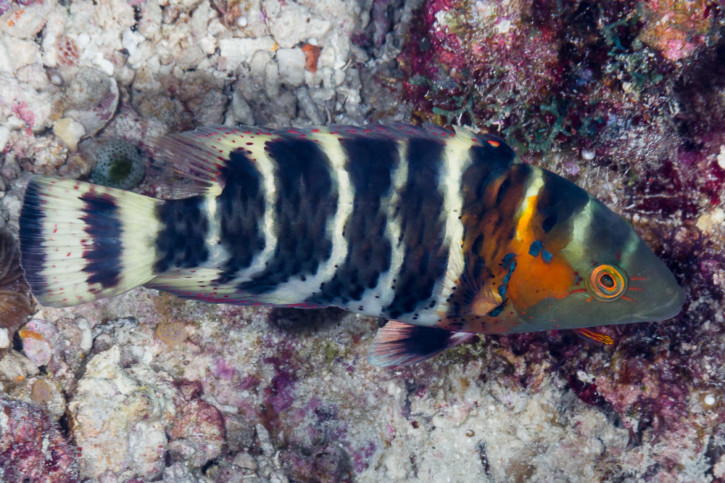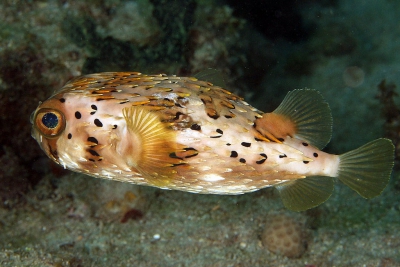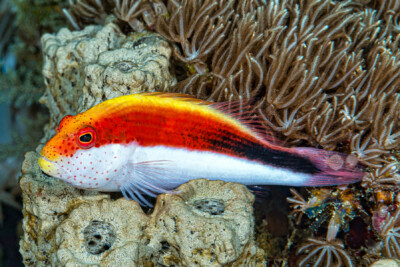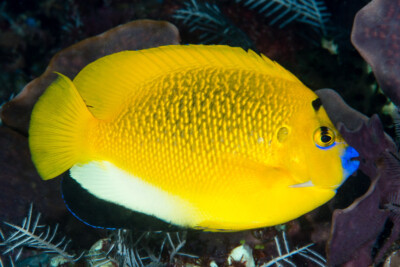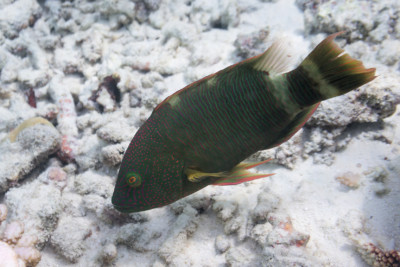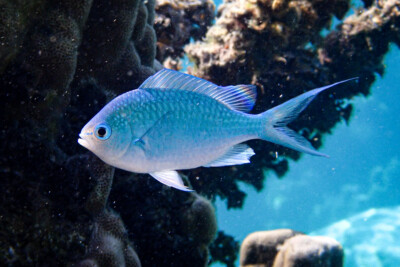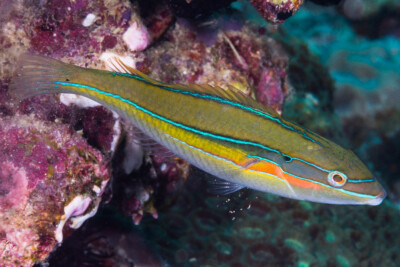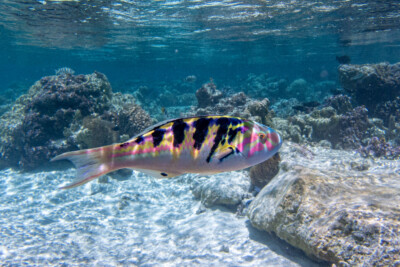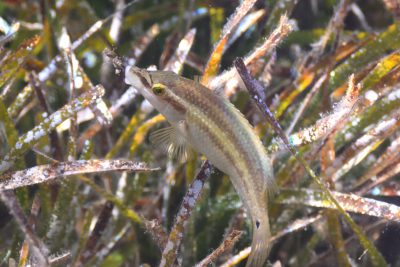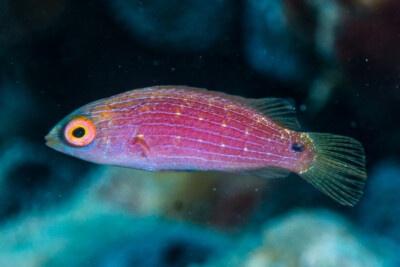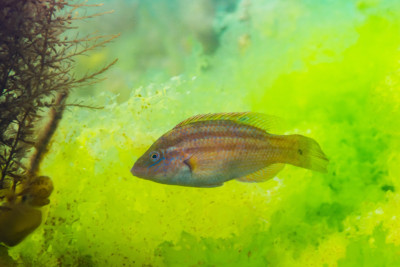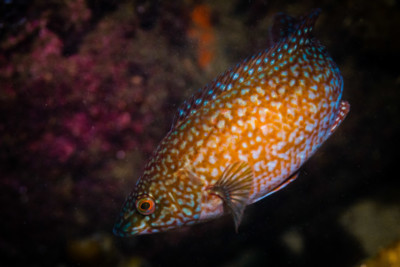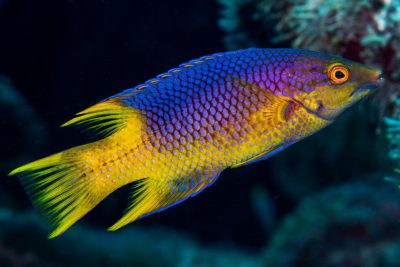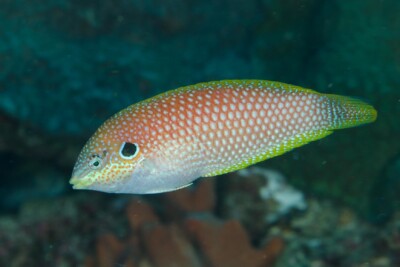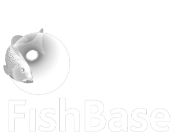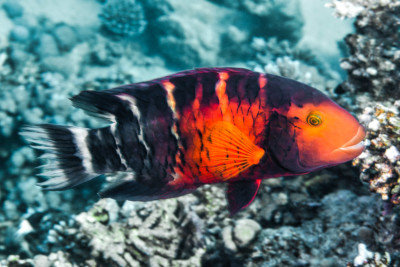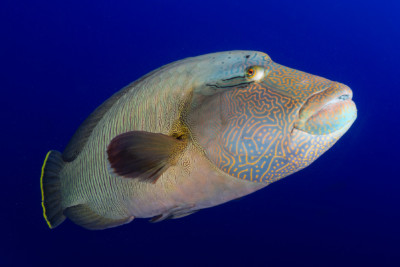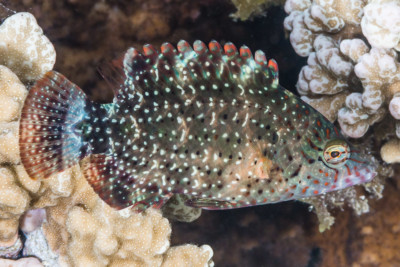scarlet-breasted maori wrasse
| Scientific name | Cheilinus fasciatus |
|---|---|
| Descriptor | Bloch |
| Year of description | 1791 |
| IUCN category (World) | LC |
| Family | Labridae |
| Genus | Cheilinus |
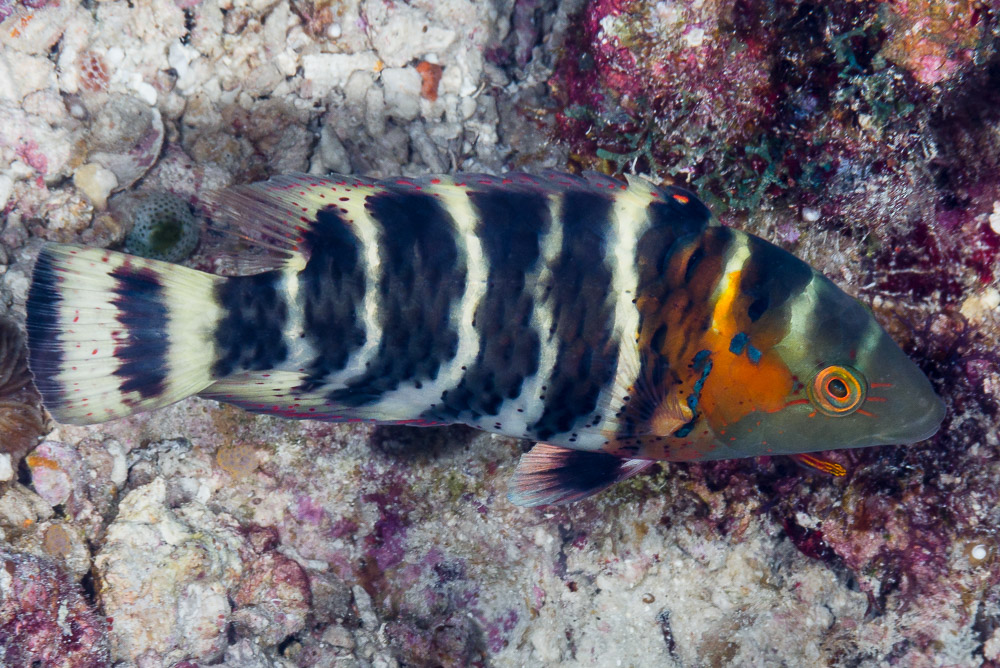

Introduction
Cheilinus fasciatus, commonly known as scarlet-breasted maori wrasse, is a salt water fish.
This sheet is currently being prepared. The texts currently proposed come from our data model or are being drafted. To request priority for this content, you can write to us HERE.
Who is it?
Genus Cheilinus
These kinds of fish belong to the Labridae family, more commonly called wrasses. In this family, a phylogenetic study describes two subgroups of the Cheilinini tribe, in which genus Cheilinus is included. This genus is close to Doratonotus, Epibulus, Oxycheilinus and Wetmorella genera. Although most of the species of genus Oxycheilinus were originally classified into the Cheilinus genus, in 2020, only 7 species are officially described as Cheilinus members.
All of these 7 species are predators in coral reefs. The larger species, including humphead wrasses, are on the highest levels of the food chain. These diurnal and territorial fish are easily caught by fishermen and hunters. All species are in danger of extinction.
Their body is moderately compressed, with a length equal or superior to the head. The colored patterns on their bodies often includes distinct vertical bars or marbling, or light sparse spots. Beside the wrasse family, these fishes are regularly confused with parrot fishes, such as Calotomus, Cetoscarus or Scarus fish.
These oviparous fishes form distinct pairs for reproduction. In addition, Cheilinus wrasses are protogynous, meaning that they are born female and then some of them turn into male. While growing, juveniles change color and sometimes patterns too.
Morphology
-
Average size35 cm
-
Maximum size40 cm
-
Patternvertical stripes
-
Average size35 cm
-
Maximum size40 cm
-
Patternvertical stripes
How to recognize This fish ?
The scarlet-breasted maori wrasse measures between 35 and 40 cm. This fish is tricolore with a predominantly orange, noir and blanc body. The also has noir and blanc vertical stripes.
Behaviour & Life cycle
-
dietcarnivorous
-
Sociabilitysolitary
-
territorialYes
-
Way of livingdiurnal
The scarlet-breasted maori wrasse is a fish solitary naturally found near the bottom. This species is carnivorous .
The scarlet-breasted maori wrasse is a territorial animal that does not tolerate any incursions into its living area. It is particularly virulent against other territorial species and it can provoke heated fights. Relationships between conspecifics are also hectic, with each seeking to secure its place.
Reproduction
-
Reproductionovipare
The scarlet-breasted maori wrasse is a fish ovipare.
Harmless species
This species does not represent any particular threats to humans when encountered in its natural environment.
Origin and distribution

What is its habitat?
Natural environment characteristics
-
Temperature25 - 29 °C
-
Depth4 - 60 m
Biotope presentation
The scarlet-breasted maori wrasse is most often found at a depth between 4m and 60m. However, it is not impossible to find this species at other depths.
Species of the same biotope
To go further
Sources & Contributions
Participation & Validation
The Fishipedia team and specialist contributors are committed to providing high-quality content. However, although the information comes from scientific sources or testimonials from specialists, the cards may contain inaccuracies.

Adrien Falzon
Translation
Translation done with the valuable contribution of our translators, who make this information available to a wider audience. We sincerely thank them for their commitment.
Scientific partners
Tags
Species of the same family
Same genus
Species of the same biotope
